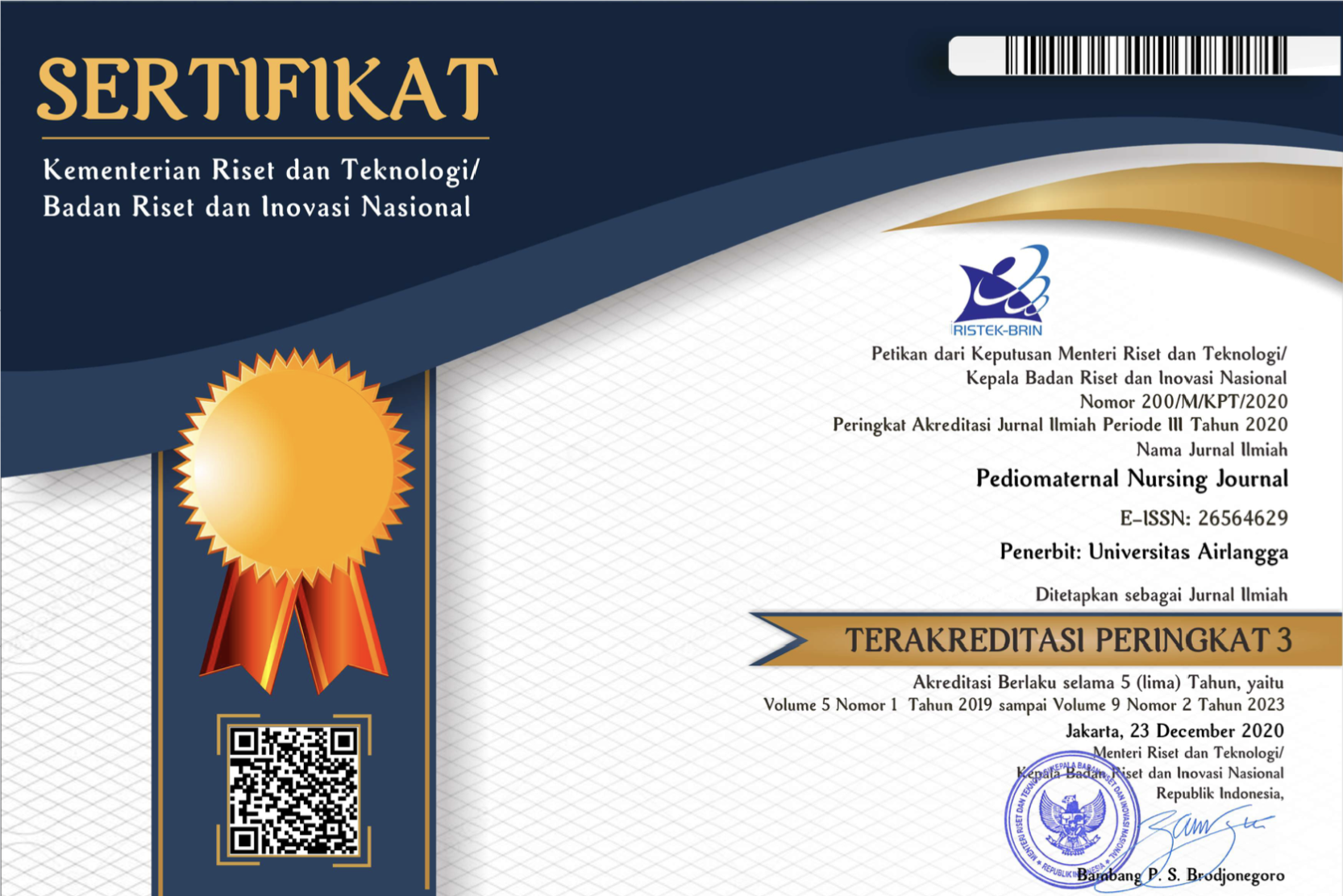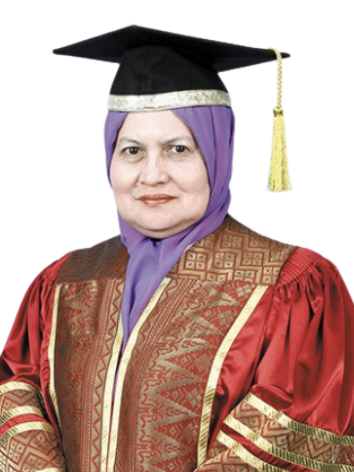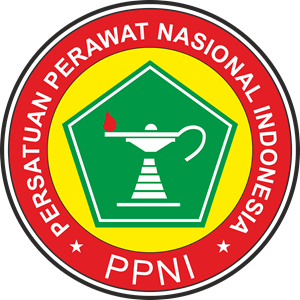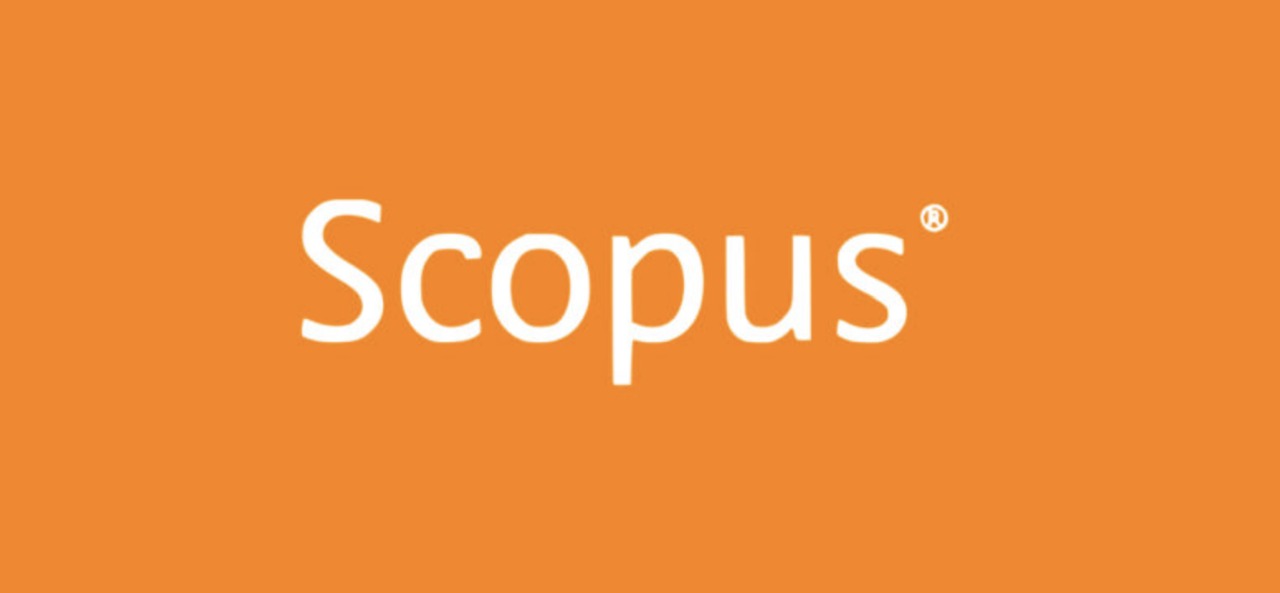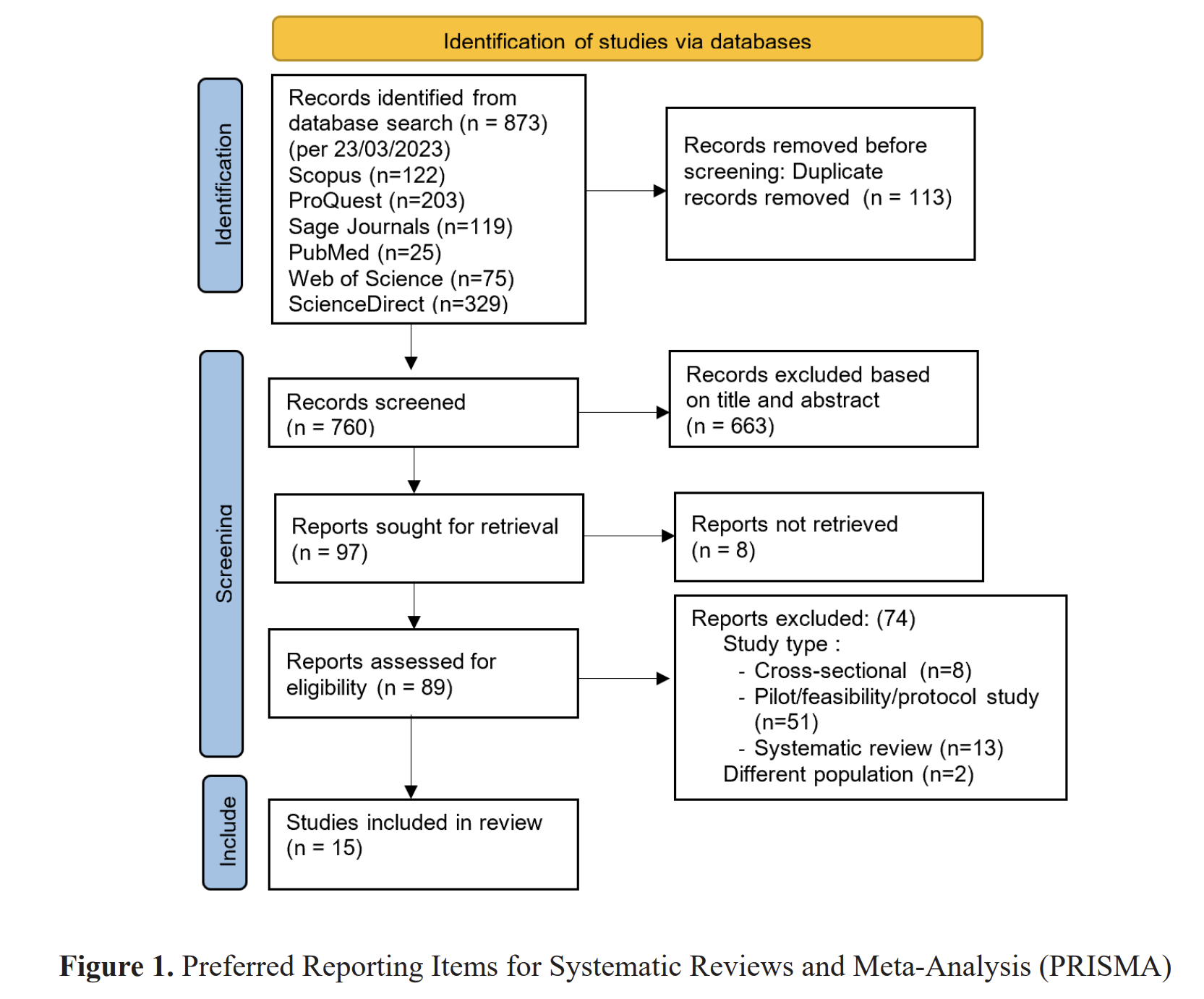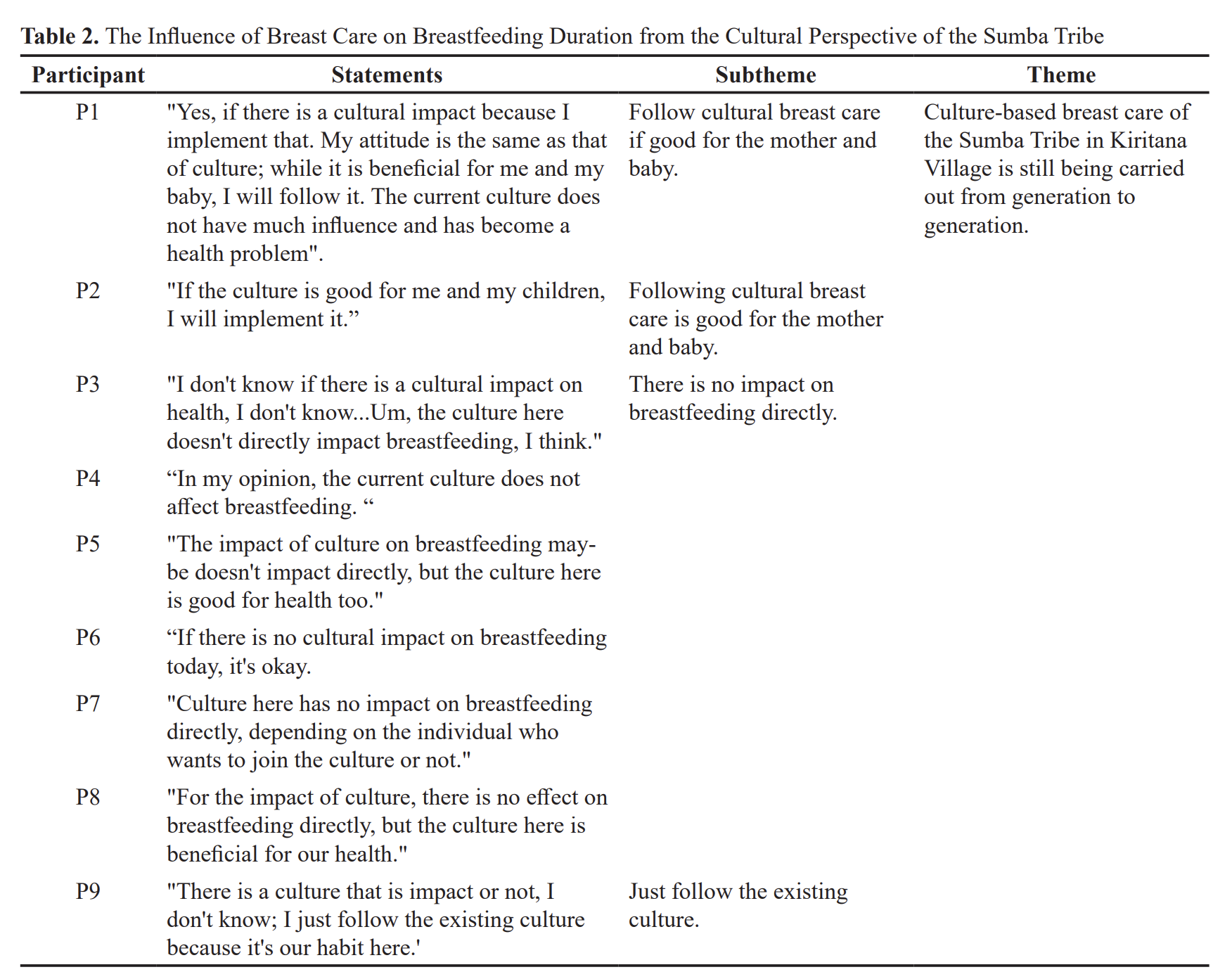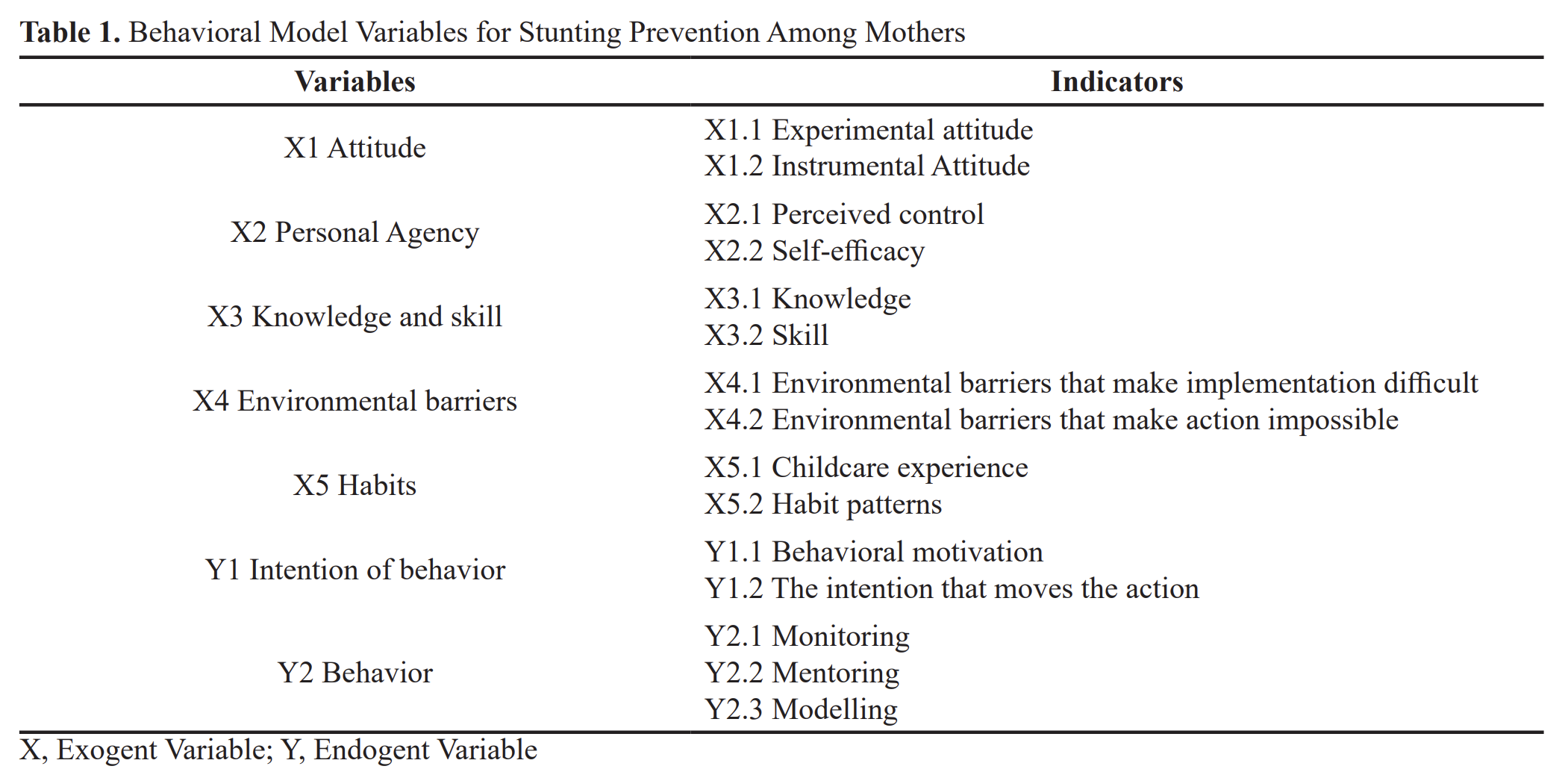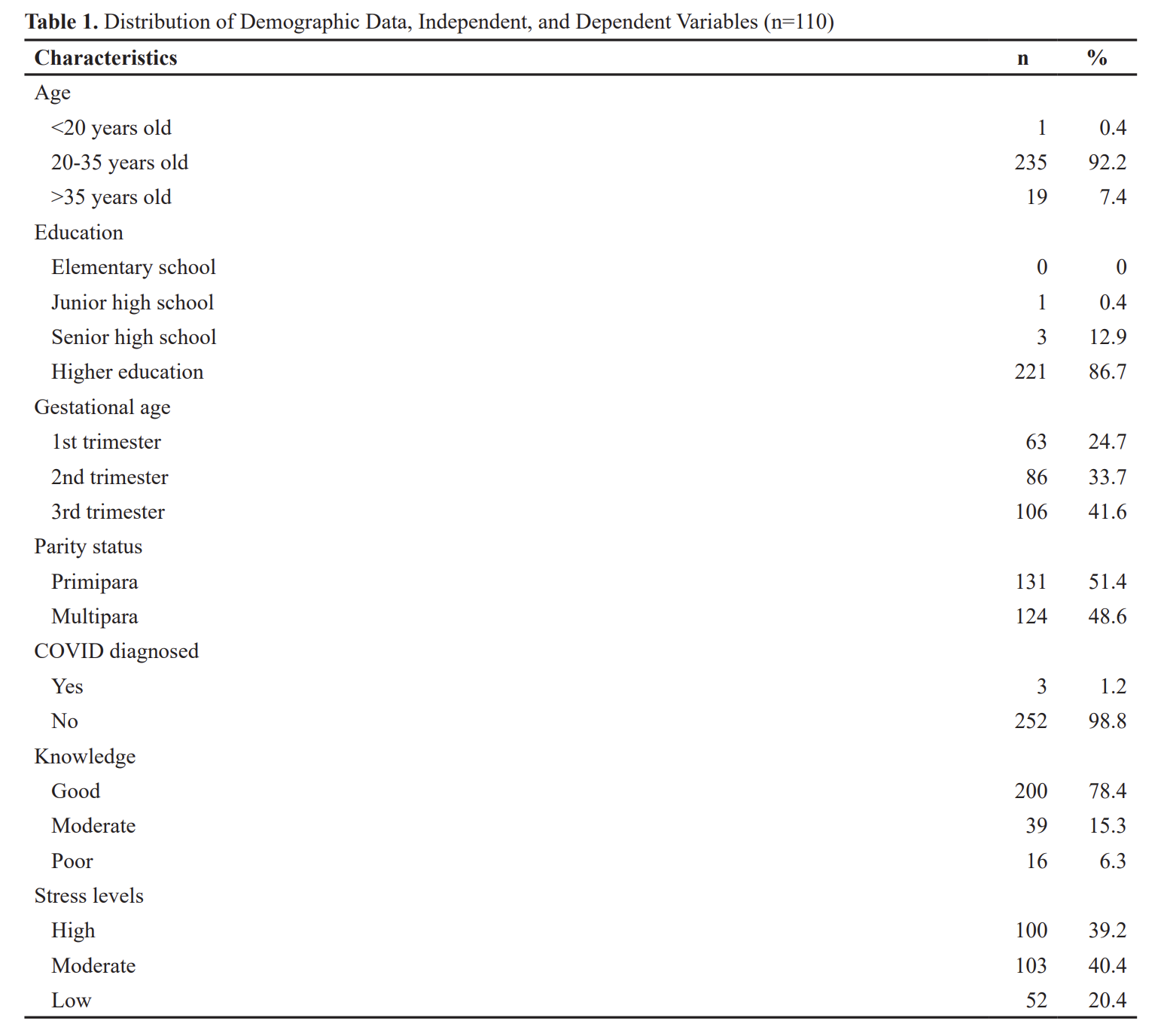The Effect of Brainstorming Method on Giving Exclusive Breastfeeding to Attitudes, Subjective Norms, Perceived Behavioral Control, and Breastfeeding Intention Among Pregnant Women
Downloads
Introduction: Breastfeeding behavior is effected by breastfeeding intention. The intention of breastfeeding is formed by three main factors, which are attitude, subjective norms, and perceived behavioral control. The purpose of this study was to analyze the effect of health education with a brainstorming method about exclusive breastfeeding toward attitude, subjective norms, perceived behavioral control, and mother's intention on giving exclusive breastfeeding.
Methods: This study used a quasi-experiment with a pretest-posttest of control group design. The variables in this study were brainstorming method, attitude, subjective norms, perceived behavioral control, and breastfeeding intention. The population of this study was second and third-trimester pregnant women at the working area of the public health center in Klampis Ngasem and Pacarkeling Surabaya, with 48 respondents selected using simple random sampling. The instrument used a questionnaire and analyzed using Wilcoxon Signed Rank and Mann Whitney U test with significance values α=0,05.
Results: The Wilcoxon Signed Rank test showed significant differences in the attitudes (p=0.000), subjective norms (p=0.000), perceived behavioral control (p=0.000), and intentions (p=0.000) before and after brainstorming intervention. Mann Whitney U post-test showed significant differences in the attitudes (p=0.000), subjective norms (p=0.000), perceived behavioral control (p=0.000), and intentions (p=0.000) between treatment and control group.
Conclusion: The intervention of health education with the brainstorming method has a significant effect of increasing attitude, subjective norms, perceived behavioral control, and mother's intention on giving exclusive breastfeeding. Further research should be to analyze the impact of brainstorming toward breastfeeding intention in postpartum mothers.
Ajzen, I. (1988) From Intentions to Actions, Attitudes, Personality and Behavior. London: Open University Press, England.
Bandura, A. (1997) 'Self-Efficacy : Toward a Univying Theory of Behavioral Change', Psychological Review, 84(2), pp. 191–215.
Buanasari, L. (2016) Pengaruh Metode Brainstorming Terhadap Pengetahuan dan Sikap Ibu Tentang Pemberian ASI Eksklusif. Universitas Airlangga.
Burhan, R., Hardianti, G. and Nugraheni, D. E. (2018) ‘Pengaruh Pengetahuan, Jenis Persalinan dan Tradisi Terhadap Pemberian Makanan Prelakteal di Wilayah Kerja Puskesmas Jalan Gedang Kota Bengkulu Tahun 2017', Jurnal Bahan Kesehatan Masyarakat, 2(1), pp. 13–20.
Dennis, C. L. (2010) Breastfeeding Self-Efficacy.
Dinas Kesehatan Kota Surabaya (2018) Profil Kesehatan Kota Surabaya Tahun 2017. Surabaya: Dinas Kesehatan Kota Surabaya.
Dinas Kesehatan Propinsi Jawa Timur (2017) ‘Profil Kesehatan Propinsi Jawa Timur 2017'.
Donnan, P. T. et al. (2013) 'Prediction of initiation and cessation of breastfeeding from late pregnancy to 16 weeks: the Feeding Your Baby (FYB) cohort study', BMJ Open, 3(8), p. e003274. doi: 10.1136/bmjopen-2013-003274.
Edberg, M. (2010) Buku Ajar Kesehatan Masyarakat : Teori Sosial & Perilaku. Jakarta: Buku Kedokteran EGC.
Effendi, F. and Makhfudli (2013) Keperawatan Kesehatan Komunitas: Teori dan Praktik dalam Keperawatan. Jakarta: Salemba Medika.
Fishbein, M. and Ajzen, I. (1975) Belief, Attitude, Intention, and Behavior: An Introduction to Theory and Research. Massachusetts: Addison-Wesley Publishing Company.
Glanz, K., Barbara, K. and Viswanath (2008) Health Behavior and Health Education. United States of America: John Woley & Sons, Inc.
Jamei, F., Ostovar, A. and Javadzade, H. (2017) 'Predictors of Exclusive Breastfeeding among Nulliparous Iranian Mothers: Application of the Theory of Planned Behavior', International Journal of Pediatrics-Mashhad, 5(3), pp. 4457–4467. doi: 10.22038/ijp.2016.20815.1748.
Mabud, N. H., Mandang, J. and Mamuaya, T. (2015) ‘Hubungan Pengetahuan , Pendidikan , Paritas dengan Pemberian ASI eksklusif di Puskesmas Bahu Kecamatan Malalayang Kota Manado', pp. 51–56.
Nasution, S. I. and Liputo, N. I. (2016) ‘Faktor-Faktor yang Berhubungan dengan Pola Pemberian ASI Eksklusif di Wilayah Kerja Puskesmas Bungus Tahun 2014', 5(3), pp. 635–639.
Notoatmodjo, S. (2014) Ilmu Perilaku Kesehatan. 2nd edn. Jakarta: Rineka Cipta.
Permatasari, T. A. et al. (2018) 'Exclusive Breastfeeding Intention among Pregnant Mothers', Kesmas: National Public Health Journal, 12(3), pp. 134–141. doi: 10.21109/kesmas.v12i3.1446.
Pradanie, R. (2015) ‘Paket Dukungan Terhadap Breastfeeding Self Efficacy dan Keberhasilan Menyusui Pada Ibu Postpartum', Jurnal Ners, 2(1).
Puspita, Y. A. (2015) ‘Perbedaan Persepsi Kontrol Diri Ibu Hamil Terhadap Intensi Ibu Untuk Memberikan Asi Eksklusif Pada Kelas Ibu Hamil Plus Di Puskesmas Muara Teweh Kabupaten Barito Utara', Jurnal Edu Health, 5(2), pp. 123–130.
Sulaeman, E. S. et al. (2018) 'Exclusive Breastfeeding Behavior Model in Rural Central Java, Indonesia: The Application of Theory of Planned Behavior', Global Journal of Health Science, 10(10), p. 35. doi: 10.5539/gjhs.v10n10p35.
Walingo, M. K. and Mutuli, L. A. (2014) 'Influence of Maternal Beliefs, Attitude, Perceived Behavior on Breast-Feeding among Post Partum Mothers in Western Kenya', Pakistan Journal of Nutrition, 13(5), pp. 250–254.
Wardani, M. A. (2012) Gambaran Tingkat Self-Efficacy untuk Menyusui pada Ibu Primigravida. Universitas Indonesia.
WHO (2018a) Children Reducing Mortality.
WHO (2018b) Infant and Young Child Feeding.
Copyright (c) 2020 Dyah Rohmatussolichah, Mira Triharini, Nadia Rohmatul Laili

This work is licensed under a Creative Commons Attribution 4.0 International License.
1. The journal allows the author to hold the copyright of the article without restrictions.
2. The journal allows the author(s) to retain publishing rights without restrictions.
3. The legal formal aspect of journal publication accessibility refers to Creative Commons Attribution (CC BY).

